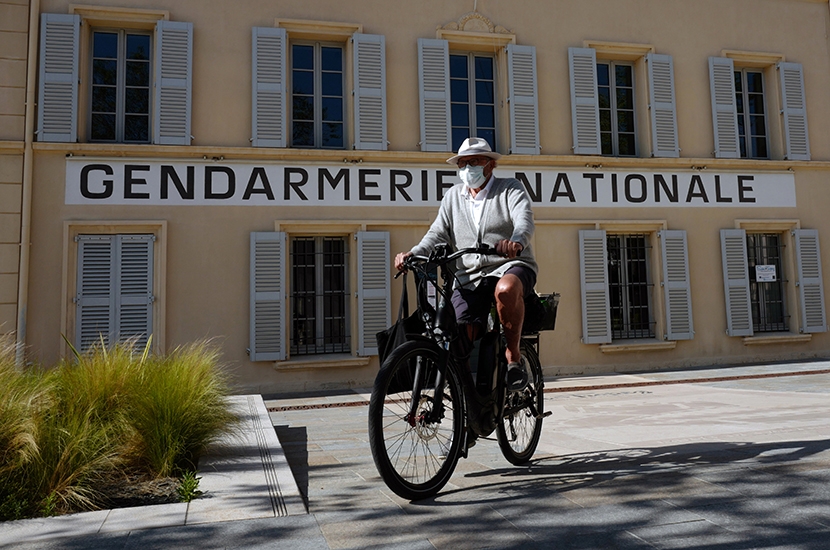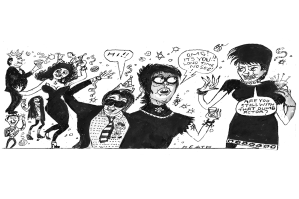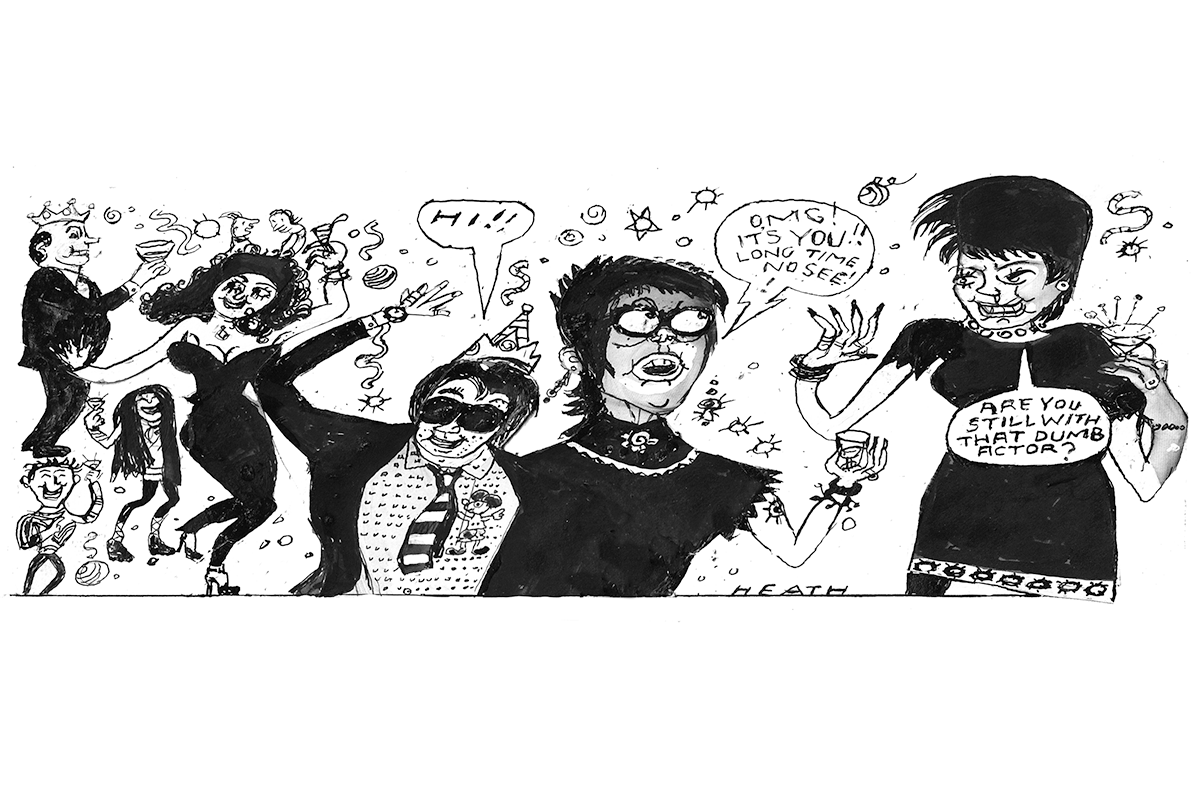It’s three days since rumors swirled around France that President Macron was going to impose a ‘tit-for-tat’ quarantine on UK visitors. While waiting for the ax to fall, several friends who had booked flights to visit us in Saint-Tropez were unsure whether to come or not. Julian Clary, who had already accepted the fact that he was going to have to quarantine upon his return home to London, told me: ‘I don’t mind having to stay at home — what I mind is not being able to visit my mother.’ ‘Well, I haven’t seen my eldest two children or my grandchildren for nearly six months,’ I retorted. There seems to be no end in sight, as morning, noon and night the media blasts out theories and rumors, about what we can and cannot do and where we are allowed or not allowed to go. Percy and I were locked down in our London apartment for three months, and I felt like I was escaping from jail when we managed to get to the south of France with my youngest daughter.
France in mid-June seemed normal after London. The sun shone, the restaurants and beaches were open, people visited the markets and shops and strolled along the port. At the start of the pandemic, the French suffered a draconian lockdown. Policemen patrolled the streets and people were heavily fined if they didn’t fill out their safe-conduct form. This obviously worked to control the virus and the French started to live again, not just exist. But now, with the tourist influx, mask-wearing has become obligatory, and cases seem to be on the rise because of the more irresponsible ‘party beaches’ that this hedonistic haven is famous for. Women, in particular, wear these masks in various jaunty ways. It’s a popular look to hang them from the wrist like a bracelet, or off one ear; or pull them down to cover the chin (clever if you have several); or push them on to the hair like an Alice band. On a shopping trip to Ikea I wore a new plastic face visor, which I had seen being worn by London hairdressers. As it’s less stifling than a ‘muzzle’ mask, I could breathe more easily. However, an officious gendarme became deeply offended by it, and while I was mulling over the benefits of Ikea’s gravadlax vs its smoked salmon, he pounced. Gesticulating in Gallic fashion, he yelled at me to put on a proper mask, because visors aren’t legal. Chastised, I slunk away, muttering an Anglo-Saxon expletive under my breath, which, as he glared at me, I feared he might have understood. I then tried wearing a clear plastic facemask, of the sort which all the staff at the Byblos were wearing, but although it was easier to speak and to be understood, it forced my face into a hideous rictus.
[special_offer]
Although it’s idyllic here, we are suffering an invasion of hornets. They descend on the breakfast table — causing our few venturous guests to scramble for safety — and fly around the swimming pool while we’re in it. One particularly vicious bug landed on me while Percy was doing laps. Screaming in terror, I jumped into the pool to get away from it, colliding with Percy and causing both of us nearly to drown.
I arrived in France with 50 new books, mostly biographies, thrillers and novels. I’ve read and enjoyed about 25, struggled through another 10, and discarded, after page 50, those that were boring, pontificating and far too politically correct. Some of the latest novels have a tedious repetitiveness about them. Even the covers have a curiously identical look, as if the same artist had designed them — but, then again, I’ve always judged a book by its cover. I love biographies of people from the golden age of film and fashion. It seems that the lives of these luminaries, up until about the 1960s, were fascinating and unconventional. I can never read enough about Coco Chanel, Ava Gardner or Howard Hughes — all total one-offs and utterly fascinating.
I’ve now lost six jobs. I’m in the same purgatory as most of my actor friends. As my profession sinks deeper into the mire of recession, it’s quite depressing. I’m still counting on being able to travel to Spain in October to work on a new TV series. But who knows what is going to happen? We’re living on the edge of a precipice and, like Roger Moore in The Spy Who Loved Me, we have to hope that a magical parachute will open up if we fall off the edge. I miss Roger very much. I’d known him since I was a teenager, when my agent father represented him. He was enormously good company — wonderfully amusing and self-deprecating. However, I thought he was a far better actor than he gave himself credit for, as evinced by his huge body of work. His anecdotes were always funny, even though I’d heard them several times throughout our friendship…and some were even mine!
This article was originally published in The Spectator’s UK magazine. Subscribe to the US edition here.

























